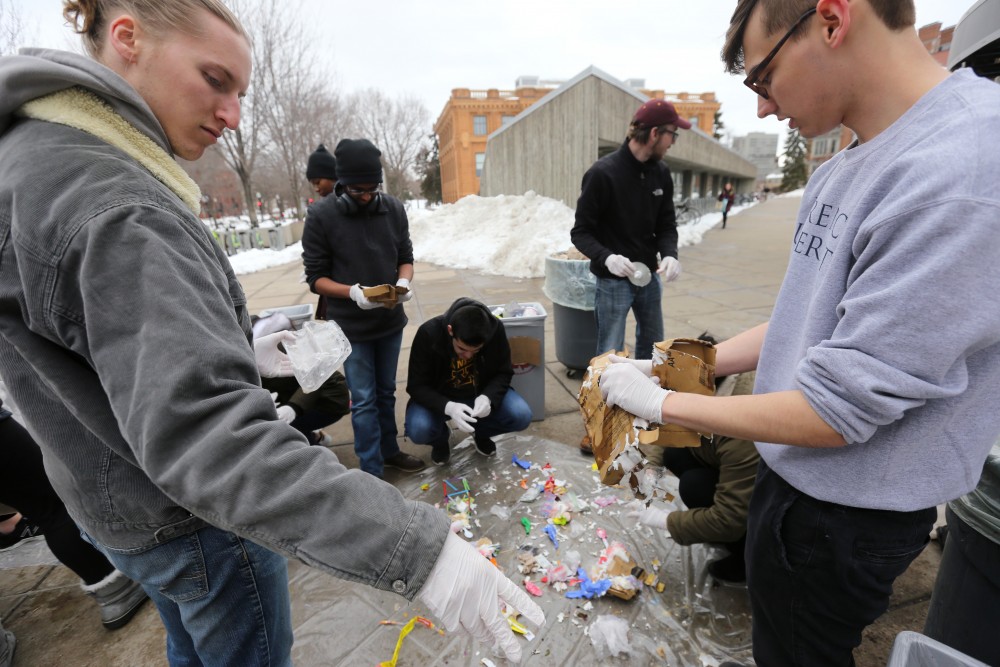A University of Minnesota student organization put on a large-scale trash audit on campus Wednesday, sorting through 780 pounds of waste.
Minnesota Public Interest Research Group poured trash from the Coffman Memorial food court onto the ground at Williamson Hall’s Plaza, in coordination with Earth Day. The organization redistributed compostable and recyclable waste to educate students about recycling different materials and the University’s zero waste goals.
There are four types of bins on campus for sorting waste: cans and bottles, paper, organic and trash.

While some might have been concerned about the smell and mess caused by the audit, Eli Miller, co-chair of MPIRG, said it helped make a point.
“I actually want it to smell to show off the horrors of it all,” Miller said. “I want it in people’s faces. We should have to face up to the waste we create.”
This is MPIRG’s second annual trash audit, but the group hopes it will have a bigger impact.
The location of this year’s audit was a high-traffic area, which drew more students’ attention, said Rachel Figueroa, an environmental science, policy and management senior.
Figueroa said she was surprised by how many unopened containers made their way into the trash.
Clifford Hall, a freshman, stopped by to fulfill a requirement for a College of Liberal Arts course.
“I could’ve just come here and signed my name on the sheet and [left],” Hall said. “But I decided to stay and help because this seemed like the bomb.”

Shelby Swan, an environmental science, policy and management sophomore and task force leader, said while small actions like creating compostable coffee sleeves are a start, the University needs to improve its composting program before it can have a positive impact.
“Even though there are compostable coffee cups on campus, it doesn’t make a difference if students still throw them in the trash because there isn’t a place to put them,” she said. “Right now, there aren’t many composting bins on campus or in most dorms.”
Utensils from the Minnesota Marketplace are compostable, but plastic straws are not. The group also hopes the exercise will help students begin to identify compostable materials on their own.
Through the event, MPIRG’s hopes to address the lack of student knowledge about the waste they produce.
All of the University’s waste is brought to the Hennepin Energy Recovery Center’s incinerator. Swan said the incineration process is bad for air quality and hopes the zero waste goals can bring an end to it.
MPIRG is hosting other events this week, with hopes that its efforts will expand beyond Earth Day.








